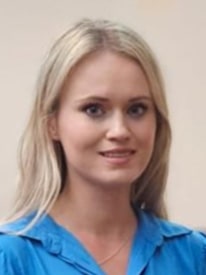Related Research Articles

Russia, or the Russian Federation, is a country spanning Eastern Europe and Northern Asia. It is the largest country in the world by area, extending across eleven time zones. It shares land boundaries with fourteen countries. It is the world's ninth-most populous country and Europe's most populous country. The country's capital and largest city is Moscow. Saint Petersburg is Russia's second-largest city and "cultural capital". Other major urban areas in the country include Novosibirsk, Yekaterinburg, Nizhny Novgorod, Chelyabinsk, Krasnoyarsk, Kazan, Krasnodar and Rostov-on-Don.
Anti-Russian sentiment or Russophobia, is dislike or fear or hatred of Russia, Russian people, Russian culture, or Russian policy. The Collins English Dictionary defines it as intense and often irrational hatred of Russia. It is often related to anti-Soviet and occasionally also to anti-Slavic sentiment. The opposite of Russophobia is Russophilia.
Soviet and communist studies, or Soviet studies is the field of historical studies of the Soviet Union and other Communist states as well as historical studies of the Communist parties that existed or still exist in some form in many countries, both inside and outside the former Eastern Bloc, such as the Communist Party USA. Aspects of its historiography have attracted debates between historians on topics including totalitarianism and Cold War espionage.

Russian National Unity or All-Russian civic patriotic movement "Russian National Unity" was an unregistered neo-Nazi, irredentist group based in Russia and formerly operating in states with Russian-speaking populations. It was founded in 1990 by the ultra-nationalist Alexander Barkashov. The movement advocated the expulsion of non-Russians and an increased role for traditional Russian institutions such as the Russian Orthodox Church. The organization was unregistered federally in Russia, but nonetheless collaborated on a limited basis with the Federal Security Service. The group was banned in Moscow in 1999 after which the group gradually split up in smaller groups and their webpage became defunct in 2006.

The first five-year plan of the Union of Soviet Socialist Republics (USSR) was a list of economic goals, implemented by Communist Party General Secretary Joseph Stalin, based on his policy of socialism in one country. Leon Trotsky had delivered a joint report to the April Plenum of the Central Committee in 1926 which proposed a program for national industrialisation and the replacement of annual plans with five-year plans. His proposals were rejected by the Central Committee majority which was controlled by the troika and derided by Stalin at the time. Stalin's version of the five-year plan was implemented in 1928 and took effect until 1932.

Relations between the Grand Duchy of Moscow and the Persian Empire (Iran) officially commenced in 1521, with the Safavids in power. Past and present contact between Russia and Iran have long been complicatedly multi-faceted; often wavering between collaboration and rivalry. The two nations have a long history of geographic, economic, and socio-political interaction. Mutual relations have often been turbulent, and dormant at other times.

Sergey Alexandrovich Karaganov is a Russian political scientist who heads the Council for Foreign and Defense Policy, a security analytical institution founded by Vitaly Shlykov. He is also the dean of the Faculty of World Economy and International Affairs at Moscow's Higher School of Economics. Karaganov was a close associate of Yevgeny Primakov, and has been Presidential Advisor to both Boris Yeltsin and Vladimir Putin. He is considered close to Putin and Sergey Lavrov.

The Soviet famine of 1930–1933 was a famine in the major grain-producing areas of the Soviet Union, including Ukraine and different parts of Russia, including Northern Caucasus, Kuban Region, Volga Region, Kazakhstan, the South Urals, and West Siberia. Major causes include: the forced collectivization of agriculture as a part of the First Five-Year Plan and forced grain procurement from farmers. These factors in conjunction with a massive investment in heavy industry decreased the agricultural workforce. Estimates conclude that 5.7 to 8.7 million people died of hunger across the Soviet Union.

Historically, Buddhism was incorporated into Siberia in the early 17th century. Buddhism is considered to be one of Russia's traditional religions and is legally a part of Russian historical heritage. Besides the historical monastic traditions of Buryatia, Tuva and Kalmykia, the religion of Buddhism is now spreading all over Russia, with many ethnic Russian converts.
Hybrid warfare is a theory of military strategy, first proposed by Frank Hoffman, which employs political warfare and blends conventional warfare, irregular warfare, and cyberwarfare with other influencing methods, such as fake news, diplomacy, lawfare, regime change, and foreign electoral intervention. By combining kinetic operations with subversive efforts, the aggressor intends to avoid attribution or retribution. The concept of hybrid warfare has been criticized by a number of academics and practitioners due to its alleged vagueness, its disputed constitutive elements, and its alleged historical distortions.
A hybrid regime is a type of political system often created as a result of an incomplete democratic transition from an authoritarian regime to a democratic one. Hybrid regimes are categorized as having a combination of autocratic features with democratic ones and can simultaneously hold political repressions and regular elections. Hybrid regimes are commonly found in developing countries with abundant natural resources such as petro-states. Although these regimes experience civil unrest, they may be relatively stable and tenacious for decades at a time. There has been a rise in hybrid regimes since the end of the Cold War.

ANNA News is a Russian pro-Kremlin news agency. The agency's name ANNA used to stand for "Abkhazian Network News Agency"; after the head office moved to Moscow, when registering in Roskomnadzor on 22 September 2017, "Abkhazian" was changed to "Analytical".

The "Russian world" is a concept and a political doctrine usually defined as the sphere of military, political and cultural influence of Russia. This concept is sometimes also phrased as Pax Russica, in parallel to the Pax Romana, and as counterweight to Pax Americana and Pax Britannica before that.
Péter Krekó is a Hungarian economist, political psychologist, political scientist, and professor. He currently serves as the Director of the Political Capital Institute, and as a senior external researcher for the Center for European Policy Analysis.
A battalion tactical group, abbreviated as BTG, is a combined-arms manoeuvre unit deployed by the Russian Army that is kept at a high level of readiness. A BTG typically comprises a battalion of two to four companies reinforced with air-defence, artillery, engineering, and logistical support units, formed from a garrisoned army brigade. A tank company and rocket artillery typically reinforce such groupings. BTGs formed the mainstay of Russia's military intervention in Ukraine from 2013 to 2015, particularly in the war in Donbas.
New generation warfare or NGW is a Russian theory of unconventional warfare which prioritizes the psychological and people-centered aspects over traditional military concerns, and emphasizes a phased approach of non-military influence such that armed conflict, if it arises, is much less costly in human or economic terms for the aggressor than it otherwise would be. It was first enunciated in 2013 by Valery Gerasimov as part of his Gerasimov Doctrine.
This is a select bibliography of English language books and journal articles about the history of Belarus and Byelorussia. A brief selection of English translations of primary sources is included. Book entries have references to journal articles and reviews about them when helpful. Additional bibliographies can be found in many of the book-length works listed below; see Further Reading for several book and chapter-length bibliographies. The External links section contains entries for publicly available select bibliographies from universities.
Bettina Renz is a German political scientist and Professor of International Security at the School of Politics and International Relations, University of Nottingham. Her major research expertise is post-Soviet Russian security and defence policy, military reform and civil-military relations. Since 2005, Renz has published numerous articles in academic journals describing the background and effects of changes in contemporary Russia's military. She is an editorial board member of the United States Army War College Press.

Jade Selena McGlynn is a British researcher, lecturer, linguist, historian, and author specialising in modern Eastern Europe, particularly Russia under Vladimir Putin. As research fellow at the Department of War Studies, King's College London, her work has focussed on the Russo-Ukrainian War since 2014, as well as identity construction, memory politics, propaganda, and state-society relations in the Russian Federation. McGlynn is also affiliated with the Faculty of Medieval and Modern Languages at the University of Oxford.
References
- ↑ "Anna Arutunyan". Wilson Center . Retrieved 2023-12-08.
- ↑ "Book Talk | Hybrid Warriors: Proxies, Freelancers and Moscow's Struggle for Ukraine". Wilson Center . Retrieved 2023-12-08.
- ↑ Kuzio, Taras (2023-10-05). "Hybrid Warriors, Proxies, Freelancers and Moscow's Struggle for Ukraine; Ukraine's Revolt. Russia's Revenge". Europe-Asia Studies . 75 (8): 1412–1414. doi:10.1080/09668136.2023.2254595. S2CID 263672963 – via Taylor & Francis Online.
- ↑ Bērziņš, Jānis (October 8, 2023). "Hybrid Warriors: Proxies, Freelancers and Moscow's Struggle for Ukraine by AnnaArutunyan, ed. Oxford: Oxford University Press, 2022. 352 pp. $29.95. ISBN 978-1-78738-795-9". The Russian Review . 82 (4): 782–783. doi: 10.1111/russ.12553 .
- ↑ Munir, Zeeshan (2023-07-03). "Hybrid warriors: proxies, freelancers and Moscow's struggle for Ukraine". International Affairs. 99 (4): 1807–1809. doi:10.1093/ia/iiad158. ISSN 0020-5850.
- ↑ Stuttaford, Andrew (2015-02-11). "Tsar Power". Wall Street Journal . Retrieved 2023-12-08.
- ↑ Beumers, Birgit (2010-06-08). "The Media in Russia". Russian Journal of Communication . 3 (3–4): 316–317. doi:10.1080/19409419.2010.10756781. S2CID 178522002 – via Taylor & Francis Online.
This article needs additional or more specific categories .(January 2024) |